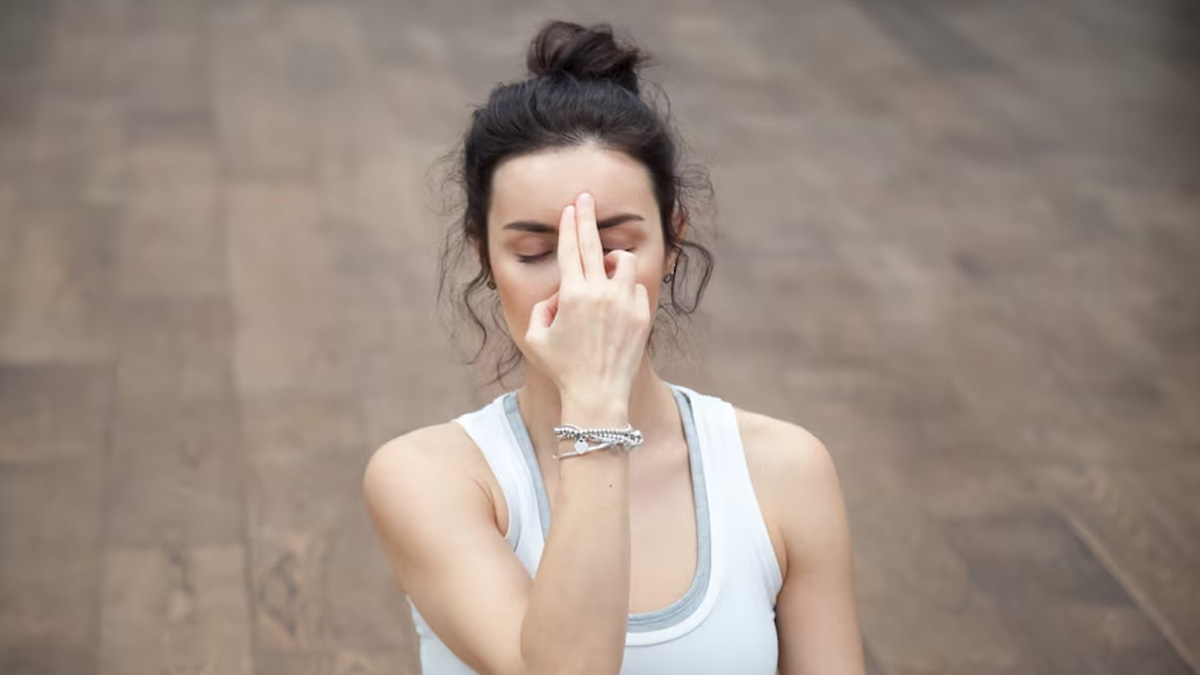
The profound impact that yoga can have on mental well-being, particularly when it comes to relieving the debilitating symptoms of depression is tremendous. Yoga is more than simply a physical activity; it is a holistic approach that includes the mind, body, and spirit, guaranteeing a transformative path toward healing.
Table of Content:-
According to the Journal of Evidence-Based Complementary and Alternative Medicine, 350 million people worldwide experience some form of depression.
On the occasion of International Yoga Day, we spoke to Dr Gowri Kulkarni, Head of Medical Operations, MediBuddy, who explained the benefits of yoga to relieve the symptoms of depression.

How Does Yoga Help?
Depression is brought on by a confluence of genetic, biochemical, environmental, and psychological variables, according to the National Institute of Mental Health. However, yoga can act as an aiding tool to alleviate the symptoms of depression.

Helps In Self Discovery
Dr Kulkarni said that when individuals engage in regular yoga practice, they embark on a journey of self-discovery and self-care. The physical postures, or asanas, help cultivate strength, flexibility, and balance in the body. As these postures are performed, biochemical processes occur, releasing endorphins, our body's natural mood-elevating chemicals. These endorphins alleviate feelings of sadness and instil a sense of security.
Controls Breathing
Dr Kulkarni further said that the deliberate focus on breath control in yoga promotes deep relaxation. By consciously regulating our breath, we activate the body's relaxation response, effectively reducing stress and anxiety. This simple yet powerful technique allows individuals to find comfort amidst the chaos of their thoughts and emotions.
Also Read: From Destressing To Improving Sleep: Here're Are 7 Benefits Of Deep Breathing & How To Practice It

Promotes Mindfulness
One of the most remarkable aspects of yoga is its ability to cultivate self-consciousness and non-judgmental observation of one's internal experiences. Through mindfulness, individuals gain valuable insights into their mental patterns, allowing them to detach from negative thoughts and emotions.
Lowers Stress Levels
Dr Kulkarni said that scientific studies have consistently demonstrated the positive effects of regular yoga practice on depressive symptoms, emotional well-being, and overall quality of life. The therapeutic potential of yoga is enhanced by its ability to regulate stress responses, modulate the production of stress hormones like cortisol, and boost serotonin levels. By embracing the mind-body connection and harnessing the healing power of yoga, individuals can embark on a path of self-empowerment and resilience.”

Social Support and Connection
Yoga sessions and other group settings provide people with a chance to socialise in an accepting and nonjudgmental context. Yoga classes with like-minded people can foster a sense of community and lessen feelings of loneliness. Having a support system and establishing social ties are crucial for controlling depression. Yoga's emphasis on the community can offer people moral support, inspiration, and a secure setting in which to share their experiences.
Also Read: #MentalHealthMatters: What Is Depression? Explained
Yoga Poses That You Can Try

Shishuasana (Child’s Pose)
You can deeply unwind and calm your nervous system with the aid of this stance. As a result, it aids in lowering stress and anxiety.
Savasana (Corpse Pose)
This pose helps you rejuvenate and refresh your mind. It activates meditative rest and helps release stress from your body.
Setu Bandhasana (Bridge Pose)
By performing this pose, you can calm your brain and reduce the symptoms of depression. It also helps open up your lungs and reduce thyroid problems, which cause mood swings and depression.
Disclaimer
This article contains inputs from an expert, however, we advise you to consult your healthcare professional before performing any pose to avoid complications.
Also watch this video
How we keep this article up to date:
We work with experts and keep a close eye on the latest in health and wellness. Whenever there is a new research or helpful information, we update our articles with accurate and useful advice.
Current Version